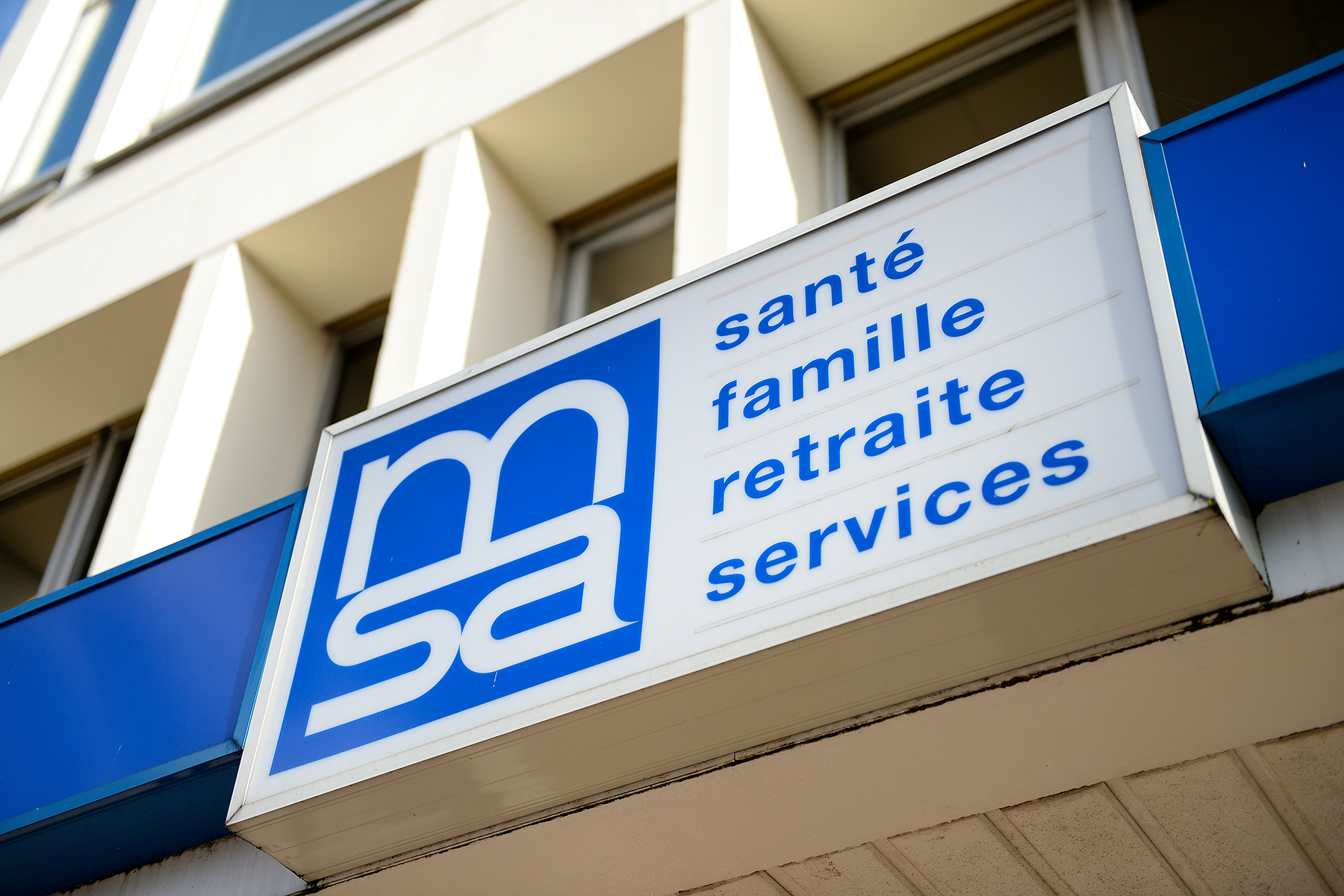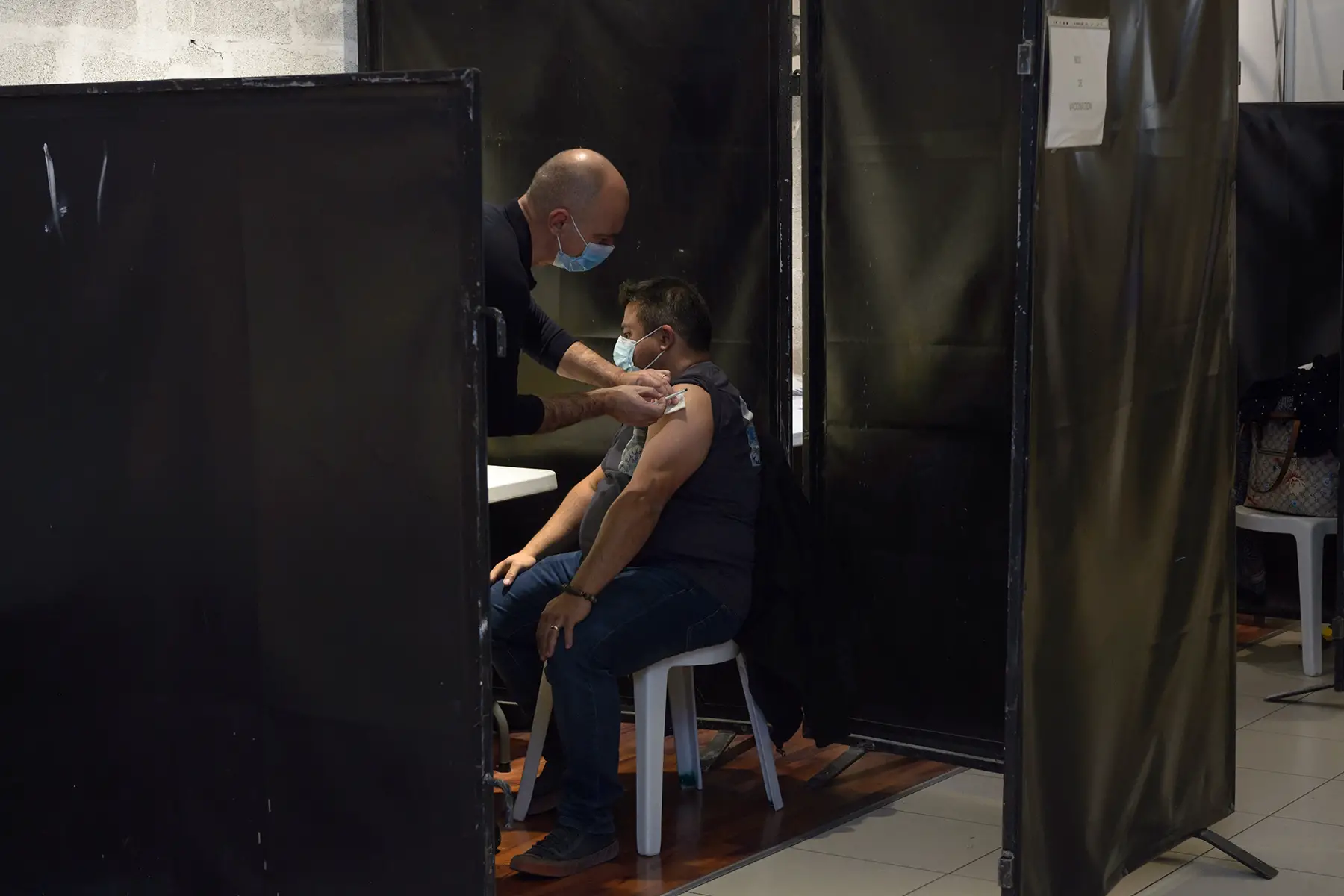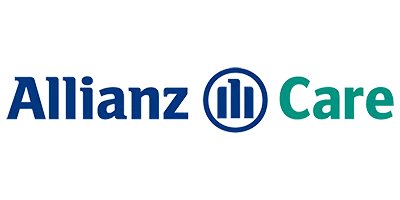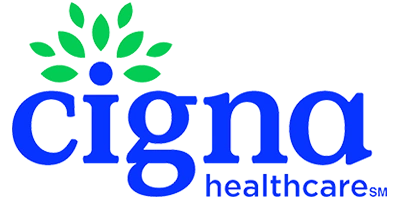Your health is one of the most important things to factor into any move abroad, especially if you’re retired, have children, or require proof of coverage for your visa. Luckily, if you live in France, you have access to a high-quality, comprehensive healthcare system. Read on to find out why most French residents have private health insurance on top of their public healthcare.
This article includes information on the following:
Cigna Global
Want access to the best private medical services in France? Speak to the healthcare professionals at Cigna Global today and find a policy that’s right for you. Take advantage of their global network of doctors, specialists, therapists and more with coverage tailor-made for you and your family. If you’re starting a new life in France, get peace of mind with Cigna Global.
Health insurance in the French healthcare system
France has a universal public healthcare system known as Protection Universelle Maladie (PUMa). It’s also called l’Assurance Maladie (sickness insurance), or more colloquially, la Sécu (from “social security”).
In 2016, PUMa replaced France’s previous healthcare system, Couverture Universelle Maladie (CMU), simplifying coverage and extending service to more residents. It is managed on the grounds by the CPAM, which has a comprehensive website and local offices everywhere to handle contact with French residents.
Do I need private health insurance in France?
It’s essential to be aware that the general public health insurance scheme only covers part of healthcare expenses. Therefore, most French residents also take out complementary, private medical insurance to make sure they have 100% coverage. This is called a mutuelle.
- Workers usually receive this from their employer.
- Some, such as low-income earners, can benefit from a complementary health insurance plan through the state-funded Complémentaire Santé Solidaire or CSS.
- Most, however, must obtain a mutuelle through private medical insurers.
Can foreigners get French health insurance?
The new PUMa scheme makes it much easier for expats to access French state health insurance. But for many, that is not accessible for the first three months of their stay. There are also several cases in which internationals cannot register for public healthcare. In that case, they must obtain private health insurance, via an international or a French health insurance provider.
The official authority that informs foreigners and manages bilateral social security benefits, including health insurance for internationals, is called Cleiss (Centre des liaisons Européennes et internationales de sécurité sociale).
Who needs health insurance in France?
Health insurance is mandatory in France. Even if you’re an expat or immigrant, if you live in France, you must have medical insurance from either a public or private scheme – or both.
If you are a newcomer from another country, you may need to show proof of health insurance during the visa application process. In our article about the French healthcare system, we explain how to ensure that you are covered when you move:
- if you hail from the EU, EEA or Switzerland, via your European Health Insurance Card (EHIC)
- if you come from the UK, via your GHIC
- for others, via a transfer of your healthcare rights from your own country to the French system
- or through an international health insurance company, such as Allianz Care or Cigna Global

You can get more information on your individual requirements by contacting Cleiss. The S1 form lets you transfer your healthcare benefits, and the healthcare authority of your country of origin must fill it out before your departure. It grants you a certificate of entitlement to healthcare when you move to a foreign country.
Summary of who can access public health insurance
Before we dive into the details below, here’s a quick overview of who needs what type of health insurance:
| What is your status? | Can you access French public health insurance? | Do you need French private health insurance? |
| Employee of a French company | Yes, right away, if you are from a EU/EEA country, the UK, or Switzerland. Others must contact Cleiss. | Probably, to top up the state coverage |
| Employee of a foreign company | It depends. Ask your employer or contact Cleiss. | It depends on your individual situation. |
| Job seeker | EU/EEA/Swiss citizens receiving unemployment benefits can transfer their healthcare rights to France. Without benefits, you must contact your health insurance company and check if your current rights grant you an EHIC. Unemployed citizens from other countries cannot register for public health insurance in France. | Definitely, if you are a citizen from a non EU/EEA country. If you are an EU/EEA/Swiss citizen, it depends on your existing coverage. |
| Student | Yes, through your EHIC if you are from a EU/EEA country, and through your GHIC if you are from the UK. If you don’t have an EHIC, you can use the S1 form to transfer your existing medical benefits. Others must register for French public healthcare through the foreign student service of Ameli.fr. | Probably, to top up basic public coverage |
| Retiree | Yes, if you are a citizen of a EU/EEA country, by filling out the S1 form and getting your healthcare rights transferred. If not, you must contact Cleiss to explore your options. | Probably, to receive 100% coverage, and access specific medical services for seniors. |
French public health insurance
Since 2016, PUMa has guaranteed health coverage to all legal residents who live or work in France for at least three months. All residents have the right to universal healthcare access, regardless of age, medical history, and record of social security contributions (cotisations sociales).
Who can register for French public health insurance?
Anyone with stable and regular residency in France for at least three consecutive months per year can register for health insurance. Your family or principal home must be in France. Furthermore, you must intend to live there for at least six months (183 days) a year.
Keep in mind that France has a three-month waiting period after arrival before you can register for state health insurance. However, if you are gainfully employed by a French company, you will immediately get medical coverage from your employer.
Children in France are automatically eligible for healthcare, regardless of nationality. However, adult members of your family must each qualify for French health benefits in their own right. That includes your spouse and your children over 18.

Editor in Chief
Marie-Charlotte Pezé
Insider tip
As I found out when returning to France after a ten-year stint in the United States, even French citizens are subjected to the three-month period before they can benefit from their home country’s public health insurance again.
French public health insurance for employees
Employees working in France (both nationals and non-nationals) are eligible for state health insurance through their social security contributions (cotisations sociales). These payments come out of their salary automatically. You have the right to public medical insurance as soon as you start working – workers do not have to wait three months.
Many employers will also provide you with a private medical insurance plan (a mutuelle) that covers your healthcare costs not reimbursed by l’Assurance Maladie.
If you are on a work mission from a foreign company, then your situation may be more complicated. It all depends on how the company is registered in France. So the best course of action is to ask your employer directly, or contact Cleiss.
Medical insurance for freelancers and entrepreneurs in France
Freelance sole traders (micro-entrepreneurs) and limited company business owners (Société à Responsibilité Limitée) can access medical insurance in France through the independent social security system.

Do you have rights to French state health insurance if you are unemployed?
If you are an unemployed French citizen or permanent resident, you have rights to French medical benefits, and you are covered by state healthcare. Coverage is not automatic, however, so you must manually apply for it with an official form (in French).
However, if you are moving to France as an expat job seeker, you may not obtain free public health insurance. Your entitlement will vary depending on your situation:
- If you were registered for unemployment back home, in a EU/EAA country or Switzerland, and had health insurance, you can probably use your EHIC card or transfer your rights via the S1 form.
- If you were not entitled to unemployment benefits in your country of origin, or if you hail from a nation outside the EU/EAA zone, then you will not be able to use public French healthcare. You will need to purchase private insurance, or international health coverage for foreigners.
Please note that unemployed residents and low-income earners may be eligible for subsidies on private mutuelles, or can likely receive the CSS, the additional public complementary insurance that covers any co-payments.
To assess your eligibility for complementary healthcare, use this calculator from l’Assurance Maladie.
Pensioners and their health benefits in France
The healthcare costs of French pensioners are automatically covered by the state upon retirement and acceptance of a pension through the National Old-Age Insurance Fund (Caisse Nationale d’Assurance Vieillesse – CNAV).
As for foreigners who wish to retire to France and live their golden years on the Riviera, access to French public health insurance is not as straightforward:
- If you are retired and moving from an EU/EAA country, you will easily transfer your health insurance rights to the French system via the S1 form.
- If you hail from a country outside of the European zone, you will need to contact Cleiss to figure out what your rights are.
It is important to note that most seniors take out private health insurance. There are French mutuelles specially designed for the older population which cover the co-pay of expensive medical services that you need in later life, such as better optical care, hearing aids, or living assistance. For example, Cigna Global offers a dedicated plan for seniors.
French health insurance for students
French students until 18 years of age benefit from their parents’ public medical insurance. From 16 years old, they may register independently; and past their 18th birthday, they must get their own social security number and register with the CPAM.
All international students enrolled in a French university (or in a higher education institution recognized by the French government) are entitled to access to French healthcare.
- Minor children of foreign residents with rights to French healthcare may also benefit from their parents’ affiliation to La Sécu.
- Students from EU/EAA countries or Switzerland who have an EHIC card and students from the UK who have a GHIC card do not need to register with l’Assurance Maladie: they will simply get their French healthcare expenses reimbursed by their own health insurance back home.
- European students who do not have an EHIC card must fill out the S1 form to transfer their health benefits to the French system.
- All other students will be able to register via the special foreign student service of the French health insurance system.
Private health insurance companies often have special deals for students who wish to also purchase a mutuelle that covers the public healthcare deductible.
Coverage for tourists and short-stay visitors in France
For visitors and short stays, EEA and Swiss citizens can typically use their EHIC. UK citizens can use their GHIC. Non-EEA citizens should get insurance from a provider with an international scope, like Cigna Global.
Asylum seekers and refugees
Asylum seekers in France will be able to be covered by public health insurance through PUMa, after their asylum request certificate (ADDA) has been delivered by the Prefecture – and after the usual three month wait time. However, they won’t be able to benefit from the state complementary coverage (CSS) until they are officially recognized as refugees. Our healthcare article gives a few tips on how to obtain comprehensive coverage.
What does French public health insurance cover?
France operates a co-payment system for public healthcare, with a percentage of all medical costs reimbursed through state health insurance. The percentage you receive depends on the type of treatment you had. For example, it’s usually 70% for doctors, dentists, midwives, and most specialists.

Reimbursement for staying in a French hospital is 80% of the costs. For prescriptions, it can be up to 100% for expensive medications. Vaccines are covered at 65%, with certain ones (like COVID-19) at 100%. Public insurance covers eye care and hearing aids at 60%. Mental healthcare and sessions with a psychologist are covered under a special treatment process that begins with visiting a general doctor for a recommendation.
For more on how much healthcare costs in France, see this table from l’Assurance Maladie for the official 2024 coverage and reimbursement rates.
How to apply for public health insurance in France as an expat
What to do before your move
If you do not have a EHIC or GHIC card, your very first step, before you even move to France, is to contact Cleiss, the international authority on bilateral social security benefits. They will be able to advise you on your specific situation and your rights to access public French healthcare as a foreigner.
Residents of EU/EEA countries and Switzerland may have to fill out an S1 form with their current health insurance provider. The certificate delivered will greatly facilitate the transfer of their rights. In many instances, that certificate will even be necessary in order to obtain a French visa.
How to register for health insurance once you are in France
Joining the French social security system, obtaining a social security number, and registering for public health insurance for most foreign residents begins with contacting your local CPAM (Caisse Primaire d’Assurance Maladie).

Editor in Chief
Marie-Charlotte Pezé
Insider tip
From personal experience, it is incredibly difficult to contact the CPAM. It illustrates the famously frustrating French bureaucracy at its finest. Be prepared for unanswered phone calls, emails that get lost in some unknown internet dimension, never to be found again, and for local offices that refuse to speak with you unless you have an appointment – which you aren’t able to set.
Brace yourself: you will probably have to correspond with them by snail mail.
What documents will you need to register for French health insurance?
Your ID and visa are the two essential documents to present to the CPAM when you want to register for your health insurance benefits.
You will most probably be asked to fill out form S1106 (pdf), also called Cerfa 15763, which is the request for the opening of rights to l’Assurance Maladie.

In some instances, the first port of call may be a bit different, and you will need to present specific additional documents:
- Expat workers will typically be registered to PUMa by their employer, but it’s worth double-checking.
- International students will obtain assistance from their university, but in any case, they cannot register for health insurance without first having their student visa and their certificate of affiliation to their higher education institution.
- Eligible retirees, students, and job seekers from abroad will need their S1 form.
- Asylum seekers must show their ADDA, delivered by the prefecture.
La Carte Vitale
La Carte Vitale is a credit card-sized document delivered by the CPAM that serves as proof that you are affiliated with the Assurance Maladie. After activating your health insurance, you may need to manually apply for the Carte Vitale.

Editor in Chief
Marie-Charlotte Pezé
Insider tip
You will need to update your Carte Vitale once per year or any time your health insurance coverage changes. You do this by inserting it in the green box at a local CPAM office, hospital, or pharmacy.
You must present your green Carte Vitale any time you receive medical treatment.
How to get reimbursed for medical care in France
If you have a Carte Vitale, nothing is easier than to pay and get reimbursed for medical care.
You just have to swipe it at the Carte Vitale terminal in the doctor’s office, at the pharmacy, or at the hospital, and your card will act as a payment method thanks to the teletransmission between the health service provider and the CPAM. If your private top up plan is also registered on your Carte Vitale and your provider allows it, you won’t even have to advance the copay.
Some medical professionals may not have the payment system; in which case, you will swipe your Carte Vitale but pay out of pocket. You will then automatically receive the money back on your bank account from the CPAM within a week.
More rarely, you will find a doctor who doesn’t have a Carte Vitale terminal at all – or it will be out of service, maybe. Then, the doctor will hand you a paper document called “feuille de soins“, which you will fill out and send to the CPAM. The refund will take a bit longer.
Registering with a doctor
Residents covered by state medical insurance must register with a family doctor (médecin traitant) to get reimbursement for their medical costs. This comes with full freedom of choice, so your doctor can be located anywhere and in any kind of practice.
You can officially register with your doctor either by simply presenting your carte vitale in the physician’s office or by mail (in French). Once you’ve registered, you will receive a déclaration de médecin traitant.
Private health insurance in France
Many French residents top up their coverage with a private health insurance policy known as a mutuelle. Some mutuelles cater to workers with specific professions, some to students or pensioners, and others to internationals, with special English- or other foreign language services.
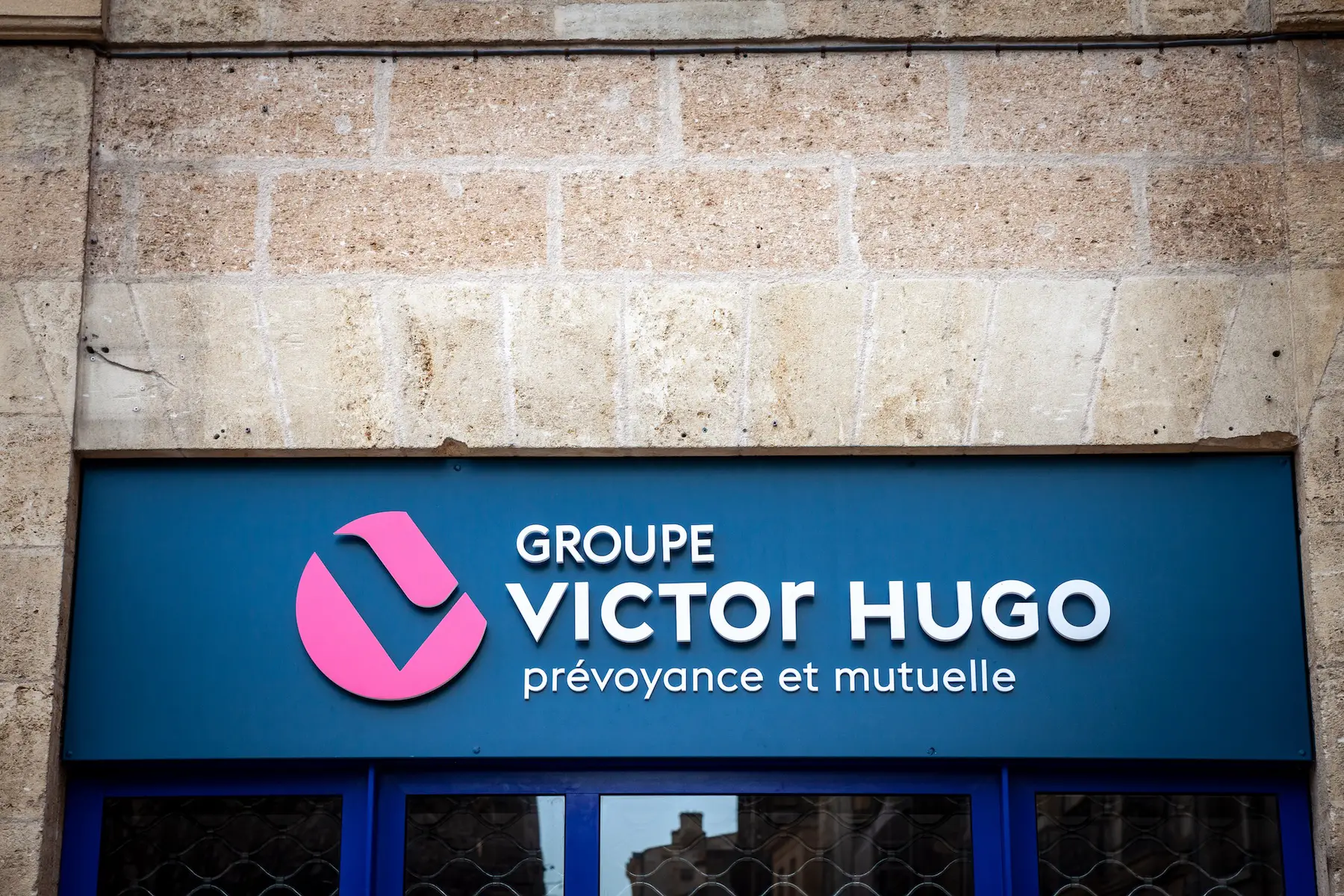
The advantages of getting private health insurance coverage
There are many advantages to subscribing to private medical insurance in France, which is why an estimated 95% of French residents do.
Getting rid of the co-pay
First and foremost, there is the co-pay. French public health insurance may be universal and cover almost all types of medical treatment, but it only does so at a certain percentage of the cost. Any time you visit a doctor, dentist, or other professional, you’ll be reimbursed for a set amount and left with 10-40% to pay out of pocket. Private health policies covers the remaining costs that public healthcare does not.
Getting the best private medical care without excess fees
In addition, the private medical sector in France is extensive. Many medical professionals and specialists from the private sector – especially the really good ones – charge more than the official rates set by the public sector. Sometimes, a lot more: it can run up to 300%-400% of the regular costs.
This is called “dépassements d’honoraires” (excess fees), and it is an essential factor to consider, when, for example, you would much prefer to be operated on by a top cardiac or orthopedic surgeon.
Private health insurance companies will show in their offers and provisions how much of these excess fees they will reimburse.
Enjoying better healthcare services
Another really good reason to secure a private health insurance plan is that they’ll come with great perks, such as private hospital rooms, more comprehensive care during your pregnancy, or coverage for the purchase of nicer glasses than the generic frames provided by public healthcare. Nobody wants to be seen walking around in those.
International health insurance for expats in France
An international health insurance plan is essential for most foreigners moving to France:
- Expats and immigrants hailing from outside the EEA for work or study will need to prove that they have appropriate private coverage before they can enter the country.
- Unlike those coming on a work visa with a contract in hand from a French employer, most internationals will not have healthcare coverage during the first three months of their stay in France.
- Spouses and adult children of immigrants may not qualify for French public healthcare of their own right.
- Finally, as seen above, certain categories of internationals will not qualify for French public healthcare at all.
Cigna Global
Want access to the best private medical services in France? Speak to the healthcare professionals at Cigna Global today and find a policy that’s right for you. Take advantage of their global network of doctors, specialists, therapists and more with coverage tailor-made for you and your family. If you’re starting a new life in France, get peace of mind with Cigna Global.
These global health insurance policies often come with the same perks as private health insurance plans for French residents:
- no co-payments or excess fees
- more comprehensive coverage
- better and faster access to the private branch of French medical care
Visit our health insurance quotes page to compare plans with global health insurance providers.
The Munich-headquartered financial services company offers international health insurance plans for expatriate students, professionals, couples and families. Depending on the policy, Allianz Care covers everyday medical expenses, emergency treatment, dental consultations, maternity, surgery, and outpatient fees.
APRIL International is a health and travel insurance provider operating in 180 countries. Their range of insurance products is tailored to the needs of expats, whether you’re relocating your family, studying for a semester abroad, enjoying a working holiday, or simply travelling. 130,000 expats already trust APRIL International.
The American health services company serves expats and globally mobile individuals in more than 200 international jurisdictions. Cigna Global’s policies are easily customized to coverage and cost requirements and customers can pick from three coverage levels, modular plans, and several cost-share options.
How do you apply for private medical insurance in France?
Signing up is straightforward: whether you need to obtain full coverage or you have PUMa and only need a mutuelle top-up, all you have to do is shop around for a private health insurance plan that suits your needs, register with them directly, and voilà.
It really pays off to compare offers, as coverage can sometimes really be tailored to your situation.
For assistance choosing a mutuelle or medical insurance for a visa, reach out to experts such as insurance brokers. Companies like Fab French Insurance provide English-language support and can guide you through your options.

Editor in Chief
Marie-Charlotte Pezé
Insider tip
A few tips on how to pick the best health insurance for you:
- You can ask your preferred OB/GYN what health insurance companies they work with
- Students may be able to stay on their parents’ insurance, but should also inquire with their university for providers who offer discounts
- Expats can look at international health insurance companies to ensure they are covered even when they visit their home country
- Retirees should ask if there are special senior plans
Please note that French employers often offer their employees a mutuelle as part of their benefits package, so inquire at your workplace before getting your own plan. Employers sometimes use an attractive private medical insurance as an incentive to poach or reward great employees – including highly qualified migrants.
You may pay a monthly premium for this complementary health insurance provided by your job, splitting this cost with your employer (who must pay at least 50% by law).
Important: Check with your HR department to see what happens to your private health coverage if the contract ends, as this varies by company.

Private and international health insurance providers in France
There is a host of private health insurance companies that will provide you with a mutuelle, once you are able to register with the French healthcare system. You can use comparison sites such a mutuelle.fr to compare plans, prices, and options.
For expats not (yet) eligible for a private policy, some of the largest international health insurance companies that operate in France as well as globally include:
How much does French health insurance cost?
Is public health insurance in France really free?
Medical insurance is indeed free in France… with some caveats. The money funding the healthcare system has to come from somewhere, and that is of course taxes.
Anyone working in France sees social contributions (cotisations sociales) automatically deducted from their salary or wages to cover health insurance. Visit Cleiss for the full list of health insurance contribution rates as of 1 January 2025. The French government amends the percentage of cotisations sociales deductions yearly.
Several factors influence health care costs, such as income level and household size. It averages out at 8% of your net income above a minimum threshold set by the state.
How much does private health insurance cost in France?
The price of a private medical insurance plan in France varies quite widely; it can go from 15-20€ per month for a student, all the way to 200€ or more for extremely comprehensive coverage.
The costs of private health insurance depend on:
- the type of coverage required,
- the options you pick (like higher excess fees reimbursements, or extra optical or dental),
- and factors such as the applicant’s age.
However, few mutuelles ask for your health details before approval. Pre-existing conditions will not affect the costs of your health insurance in France.
It’s always good to research and compare plans before moving to obtain the best insurance coverage.
Useful resources
- L’Assurance Maladie (AMELI) – the French government’s health insurance department
- Cleiss – Official authority managing French benefits for internationals, including health insurance
- Service-Public.fr – official French government site dedicated to public information about social healthcare



